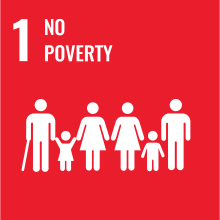The Dandekar and Rath Committee, officially known as the “Committee on the Minimum Needs and Effective Consumption Demand” was a committee appointed by the Indian government in 1978 to review and recommend a methodology for estimating poverty in the country. The committee was chaired by Professors Y.K. Alagh, D.T. Lakdawala, and S.S. Mehta, and is often named after the two main members, Professors D.R. Dandekar and N. Rath.

The primary objective of the Dandekar and Rath Committee was to develop a poverty estimation methodology that would take into account the minimum requirements necessary for a person or household to meet their basic needs and achieve a certain standard of living. The committee aimed to move beyond a simple calorie-based approach and consider a broader range of factors that contribute to human well-being.
Key features and contributions of the Dandekar and Rath Committee’s recommendations include:
- Calorie-Based Approach: While the committee aimed to move beyond a strict calorie-based approach, it still recognized the importance of caloric intake as a fundamental requirement for sustenance. It proposed a minimum caloric intake required to maintain basic health.
- Basic Needs and Effective Demand: The committee emphasized the concept of “minimum needs” and “effective consumption demand” as crucial factors in estimating poverty. It suggested that poverty should be assessed based on the ability of a household to fulfill its essential needs and achieve a certain standard of living.
- Urban and Rural Distinctions: The Dandekar and Rath Committee recommended separate poverty lines for urban and rural areas, acknowledging the differences in consumption patterns, cost of living, and availability of resources between these two settings.
- Non-Food Expenditure: In addition to food consumption, the committee recognized the importance of non-food items and services in determining the quality of life. It suggested including essential non-food items like clothing, shelter, education, and health services in the estimation of poverty.
- Economic Growth and Poverty Reduction: The committee emphasized the role of economic growth and development in reducing poverty. It highlighted the need for policies and programs that promote income generation and improve living conditions for disadvantaged populations.
The Dandekar and Rath Committee’s recommendations provided a more holistic approach to poverty estimation by considering not only caloric intake but also the broader aspects of human well-being. While the committee’s methodology had its own limitations and faced criticisms, it contributed to the evolution of poverty estimation techniques in India and laid the foundation for subsequent committees to further refine and develop these methodologies.